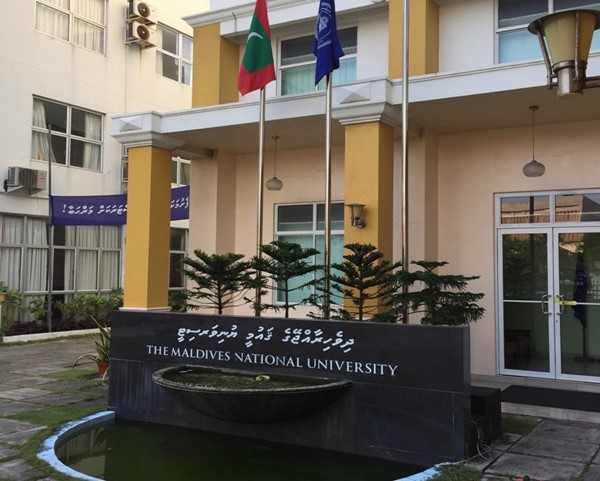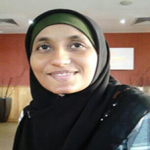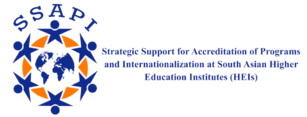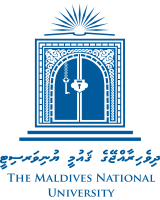
The Maldives National University Act was endorsed by the president on 17th January 2011 and subsequently the Maldives National University was established on 15th February 2011. The strategic plan of the Maldives National University can be accessed through https://mnu.edu.mv/wp-content/uploads/2020/09/Strategic-Plan-2020-2025-.pdf
The Maldives National University will perform and be acknowledged as the outstanding academic institution of the nation and one of the finest in the region.
To create, discover, preserve and disseminate knowledge that are necessary to enhance the lives and livelihoods of people and essential for the cultural, social and economic development of the society so that this nation shall remain free and Islamic forever.
- Offer courses of higher education and training to those who have completed secondary education or equivalent in areas relevant to the development of the nation
- Carry out scientific research and investigations and disseminate the results of these endeavors for the benefit of the national and international communities
- Award baccalaureate, masterate and doctorate degrees and other certificates in relation to the education and training provided by the University
- Establish relationships of cooperation with institutions both inside the country and abroad
- Develop existing University resources and acquire new ones in the pursuit of the achievement of the University mission
- Utilize the resources of the University among the divisions in the most beneficial manner.
- Promote and promulgate Islamic Dhivehi traditions and values
- Any other activities incidental or conducive to the performance of the preceding functions.
Project Goals:
The role of MNU in this project is share information, resources , organise staff exchange, liaise with other partners and conduct meetings and visit partner institutions. MNU will also facilitate to play a role to assist the delegates who visit MNU under this project. MNU will collaborate and work with other partners in order to achieve the goals of this Erasmus project.
For a small country that has only opened its first university in 2011, the Maldives has seen a massive increase in higher education enrolment in recent years. At the end of 2018, more than 85 HEIs are registered with the Maldives Qualifications Authority (MQA). Jointly, these institutions offer more than 1,500 programmes at varying levels. Cross boarder provision and virtual learning has become a common place. In this shifting landscape, managing standard and quality of higher education has become a serious challenge both for the higher education providers and for the governmental agencies. Institutional reviews and programme reviews started by the Maldives Qualifications Authority in 2017 are hindered by the lack of trained personnel. Only a handful of trained reviewers are available to participate in these tasks thereby limiting the coverage and effectiveness. Quality monitoring, assessment and enhancement cells within most of the HEIs are weak and are in serious need of trained personnel. These issues need to be tackled as the country embarks on its ambitious programme of providing free undergraduate education. The SSAPI project will stand as an important contributor to bridge these gaps and help the human capital building in standardization and internationalization of HEIs at this crucial junction of HE provision in the Maldives. Exchange of staff and cross- border collaboration among the participating institutions will provide training opportunities for a number of professionals in this area, who could then provide the necessary trainings at the national level and disseminate best practices. Individual HEIs will directly benefit from the programme through improvements in the structures and procedures while cooperation amongst the participating institutions are likely to lead to large-scale structural projects. Through local competency building, the university management would be better able to manoeuvre the direection of these institutions and face the contemporary challenges in the area of international accreditation.
T3.1 Development of Learning Material and Training Methodology This task will deal with identifying and then developing the required learning material, as per the need of the training participants in each partner country HEI. Then the appropriate training methodology will also be devised, keeping into account its effectiveness in the local context.
T3.2 Monitoring and Evaluation of Trainings This task deals with assuring that trainings are conducted in the best appropriate manner, in order to maximize their effectiveness, and that the participants have gone through a good learning experience. This task also deals with conducting survey and obtaining feedback from the training participants to assess whether the desired outcomes were achieved. Consequently, the team will also suggest remedial measures and corrective actions, along with suggesting any improvement in learning material or training methodology.
Project Members

Dr. Aishath Shehenaz Adam
Deputy Vice Chancellor of Research and Enterprise

Dr. Raheema Abdul Raheem
Director of Research

Dr. Hawwa Shiuna Musthafa

Dr. Abdulla Nazeer
Project manager of the PROMISE project (SWITCH-ASIA)

Ms. Nash’aa Ahmed Naseem
Research Associate at the Research Development Office

